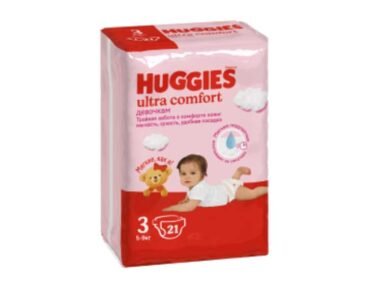Key Takeaways
- Understand how heat pumps efficiently handle home heating and cooling, reducing energy bills.
- Learn about the environmental advantages of heat pumps and discover the different types available on the market.
- Find out how heat pumps contribute to modern, sustainable living.
Keeping a home comfortable throughout the year necessitates efficient heating and cooling systems. Heat pumps have become increasingly favored as they integrate heating and cooling functions into a single unit. Compared to conventional furnaces and air conditioners, heat pumps provide a more energy-efficient alternative by transporting heat rather than producing it. This technology is commonly adopted by homeowners looking to decrease their energy bills while maintaining a cozy living environment.
Over time, heat pumps may require maintenance to keep them running efficiently. Professional heat pump repair Raleigh NC services, can help restore optimal performance if issues arise. Companies like AnyDay Heating & Cooling provide expert repairs and maintenance, ensuring that homeowners continue to enjoy reliable heating and cooling. Regular servicing extends the lifespan of a heat pump and prevents costly breakdowns. Investing in professional care keeps the system running smoothly, providing year-round comfort with minimal energy waste.
How Heat Pumps Work
A heat pump is an apparatus that brings heat into a house from outside sources. It distributes heat in the warmer months and absorbs it in the colder ones. The surplus heat within is then removed and exchanged outside to chill the interior atmosphere. By eliminating the necessity for separate heating and cooling systems, this dual functionality offers a more pleasant and environmentally responsible substitute for conventional energy systems. It is an economical and effective solution since it concentrates on heat transmission rather than generation.
Advantages of Using Heat Pumps
For households, heat pumps provide several advantages, including increased energy efficiency, less environmental effect, and versatility. Compared to conventional systems, they may save heating and cooling energy by up to 50%, making them a desirable option for people dedicated to sustainable living. Additionally, heat pumps diminish carbon emissions since they utilize renewable heat, leading to lower energy demand and a smaller environmental footprint. They also allow for customized climate management, facilitating smooth transitions between heating and cooling, which is particularly beneficial for homes with varying climate needs. Heat pumps represent a viable option for promoting sustainable living and lowering carbon emissions.
Different Types of Heat Pumps
Potential users can choose from several types tailored to specific circumstances and conditions when selecting a heat pump. Common varieties include Air-source Heat Pumps, which are most suited for moderate climates and extract heat from surrounding air to offer efficient cost savings; Ground-source (Geothermal) Heat Pumps, which are optimal for more extreme temperatures, drawing upon geothermal energy from the Earth, requiring significant installation investment but offering unparalleled efficiency.
Lastly, Water-source Heat Pumps are tailored for proximity to water sources like lakes or ponds, utilizing the thermal benefits offered by these natural environments to heat or cool homes efficiently. These variations cater to geographical demands and support multiple infrastructural contexts, catering to specific energy needs and climatic demands.
Cost Considerations and Incentives
Although the upfront expenses of incorporating a heat pump system into a household seem high, the savings on energy expenses over time make the investment worthwhile. Homeowners should investigate possible rebates and financial incentives that often come with switching to heat pumps.
Ultimately, the diminished monthly expenses associated with energy consumption deliver pronounced financial returns over successive years, thereby endorsing the value proposition of heat pump technology. The cost efficiency, coupled with governmental incentives, contributes to the popularity and accessibility of these energy-saving systems.
Installation and Maintenance Tips
It is strongly advised to hire professional installers knowledgeable about heat pump technology to guarantee the best performance. A skilled installation can significantly impact the system’s efficiency and lifespan. After installation, consistent maintenance is also essential—regularly cleaning filters, coils, and ducts, along with maintaining proper fluid and refrigerant levels, ensures the system operates smoothly and maintains its efficiency over time.
Homeowners should prioritize regular system check-ups to prevent potential malfunctions and maintain the seamless operation of their heat pumps throughout their lengthy life cycle. An informed maintenance strategy extends the system’s lifespan and optimizes energy expenditure management.
Moving Towards a Sustainable Future
The global momentum toward sustainability underscores the imperative need to embrace energy-efficient technologies such as heat pumps. National and international emphasis on ecological responsibility facilitates adopting such systems among conscientious homeowners, contributing exponentially to localized and global energy conservation efforts.
Heat pumps enable homes to actively participate in the movement to reduce greenhouse gas emissions and promote the transition to sustainable energy consumption. This mutual alignment of economic, ecological, and sustainable objectives offers a beacon of promise for a cleaner, greener future sustained by equitable, conscience-driven energy consumption.










